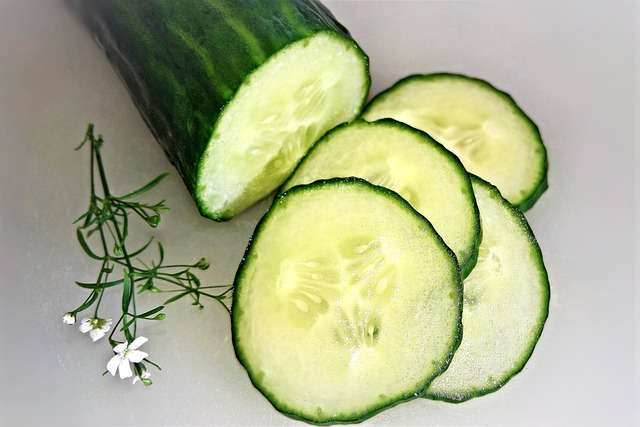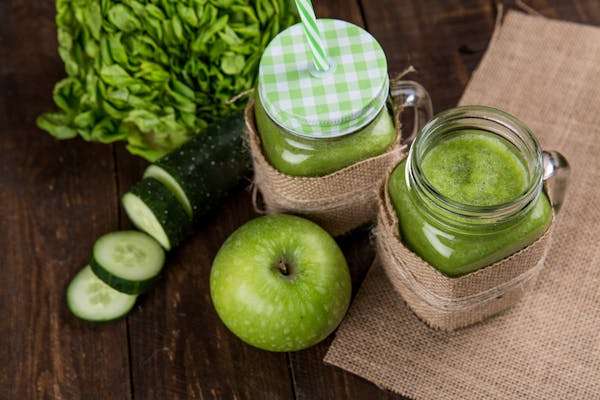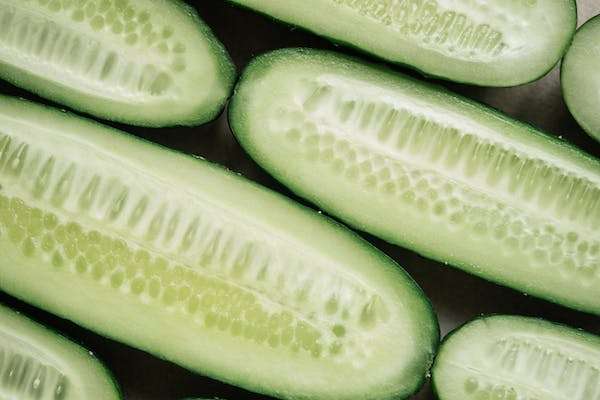Cucumbers are more than just a refreshing addition to salads—they’re packed with essential nutrients that can benefit your health in numerous ways. Often overlooked for their simplicity, cucumbers boast a rich nutritional profile that supports hydration, weight management, and overall well-being.
In this article, we’ll dive into the Nutrition Facts on Cucumber to reveal why this versatile vegetable deserves a spot in your daily diet. From their low-calorie content to their impressive array of vitamins and minerals, cucumbers are a powerhouse of nutrients that can enhance your health in unexpected ways.
Whether you’re looking to improve your digestive health, boost hydration, or enjoy glowing skin, understanding the nutritional benefits of cucumbers is the first step. Let’s explore what makes cucumbers a must-have in a healthy lifestyle.
Nutritional Profile of Cucumbers:

Cucumbers may be low in calories, but they are rich in vital nutrients that contribute to overall health. When examining the “Nutrition Facts on Cucumber,” it becomes clear that this vegetable offers a well-rounded nutritional profile that makes it an excellent addition to any diet.
Cucumbers are primarily composed of water—about 95%—which makes them an ideal food for hydration. Despite their high water content, cucumbers provide essential vitamins and minerals, including Vitamin K, Vitamin C, potassium, and magnesium, all of which play crucial roles in maintaining health.
Caloric Content and Macronutrient Breakdown:
Cucumbers are incredibly low in calories, with just about 16 calories per 100 grams, making them a perfect snack for those looking to manage their weight. They contain small amounts of carbohydrates and protein, with almost no fat, making them light yet satisfying.

Key Vitamins and Minerals:
The vitamins and minerals in cucumbers support various bodily functions. Vitamin K is essential for blood clotting and bone health, while Vitamin C acts as a powerful antioxidant, boosting the immune system. Potassium helps regulate blood pressure, and magnesium supports muscle and nerve function.
Water Content and Its Importance:
Cucumber’s high water content is vital for hydration, helping maintain fluid balance in the body. This can aid in digestion, skin health, and overall cellular function.
Health Benefits of Cucumbers:
The “Nutrition Facts on Cucumber” reveal that this humble vegetable is more than just a crunchy snack—it offers a variety of health benefits that can enhance your well-being in several ways. From supporting hydration to promoting digestive health, cucumbers are packed with nutrients that contribute to overall health.
Hydration and Detoxification:
Because they contain nearly 95% water, cucumbers are a great vegetable to eat to stay hydrated. Proper hydration is essential for maintaining body temperature, flushing out toxins, and ensuring the smooth functioning of all bodily systems. Consuming cucumbers regularly can help keep you hydrated, which in turn supports skin health, digestion, and energy levels.

Weight Management:
Given their low-calorie content and high water and fiber levels, cucumbers are an ideal food for weight management. They can be enjoyed in large quantities without contributing significantly to calorie intake, helping to create a feeling of fullness and reducing the likelihood of overeating.
Digestive Health:
The fiber content in cucumbers, though modest, plays a crucial role in promoting healthy digestion. Fiber aids in regular bowel movements and prevents constipation, helping to maintain a healthy digestive tract. Additionally, cucumbers contain compounds like lignans, which have been linked to a reduced risk of certain cancers, including colon cancer.
Skin Health:
Cucumbers are often used in skincare routines, and for good reason. The antioxidants and high water content help soothe the skin, reduce swelling, and alleviate irritation. Cucumber slices applied to the skin can also reduce puffiness and dark circles under the eyes, thanks to their cooling and anti-inflammatory properties.
Blood Sugar Control:
Emerging research suggests that cucumbers may help lower blood sugar levels and reduce the risk of diabetes-related complications. Their low glycemic index and the presence of antioxidants and plant compounds contribute to better blood sugar regulation.
Culinary Uses of Cucumbers:
Cucumbers are incredibly versatile in the kitchen, offering a wide range of culinary uses that make them a staple in many diets. The Nutrition Facts on Cucumbers highlights their low-calorie content, high water levels, and rich nutrient profile, making them an ideal ingredient for health-conscious meals. Whether you’re looking to add a refreshing crunch to salads or create a hydrating snack, cucumbers can be used in various ways to enhance your dishes.
Salads and Sides:
One of the most common uses of cucumbers is in salads. Their crisp texture and mild flavor complement a variety of ingredients, making them a perfect base for both simple and complex salads. Cucumbers pair well with tomatoes, onions, and leafy greens, adding not only flavor but also essential nutrients like Vitamin K and Vitamin C to your meals. They can also be sliced thinly and pickled to create tangy cucumber pickles, a popular side dish.
Smoothies and Juices:
For those seeking a refreshing and hydrating drink, cucumbers can be blended into smoothies or juiced. Their high water content makes them an excellent ingredient for green smoothies, adding a cooling effect without overpowering other flavors. Cucumber juice is also popular for its detoxifying properties, often combined with ingredients like lemon, mint, or ginger to create a revitalizing drink.
Snacks and Dips:
Cucumbers make for a quick and healthy snack. They can be sliced into sticks and paired with dips such as hummus, tzatziki, or guacamole for a nutritious and satisfying treat. The low-calorie nature of cucumbers, as seen in the “Nutrition Facts on Cucumber,” allows you to enjoy them freely without worrying about excessive calorie intake.
Conclusion:
Incorporating cucumbers into your diet can lead to a refreshing and nutrient-packed experience. From supporting skin health to aiding digestion, this unassuming vegetable boasts an array of benefits that are too good to ignore.
FAQs:
- Can I eat the skin of a cucumber?
Absolutely! The skin of a cucumber is rich in fiber and contains a variety of nutrients.
- Are there different varieties of cucumbers?
Yes, there are various types of cucumbers, including the common slicing cucumber and the smaller pickling cucumber.
- Can cucumbers help with weight loss?
Due to their low calorie and high water content, cucumbers can be a valuable addition to a weight loss plan by helping you feel full with fewer calories.
- Is cucumber a good source of hydration?
Absolutely, cucumbers are an excellent source of hydration due to their high water content. They can be particularly refreshing during hot summer days.
- Can cucumbers benefit my hair and nails?
Yes, the silica content in cucumbers promotes hair and nail health by contributing to their strength and shine.

1 thought on “Nutrition Facts on Cucumber and Potential health Benefits”